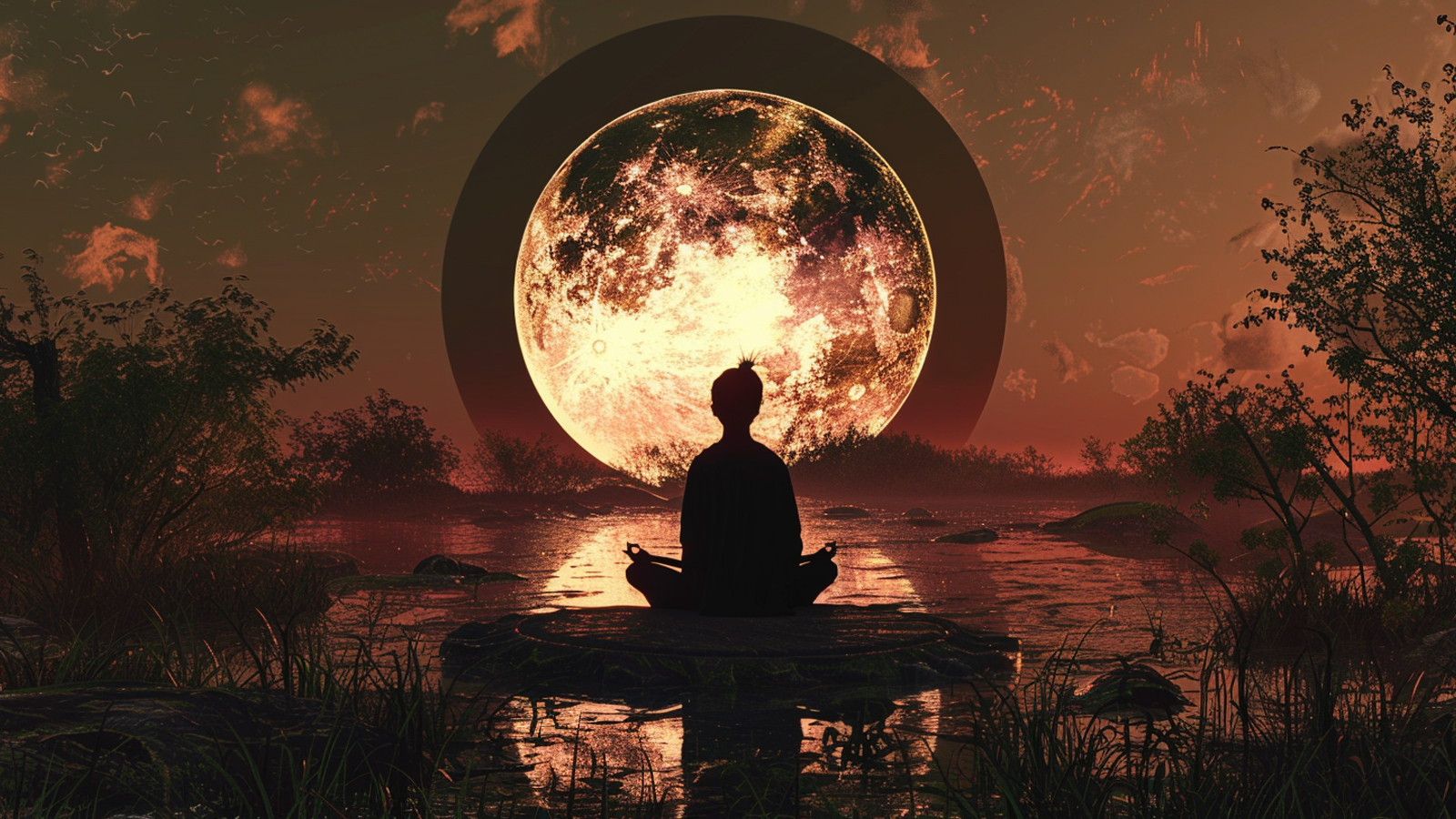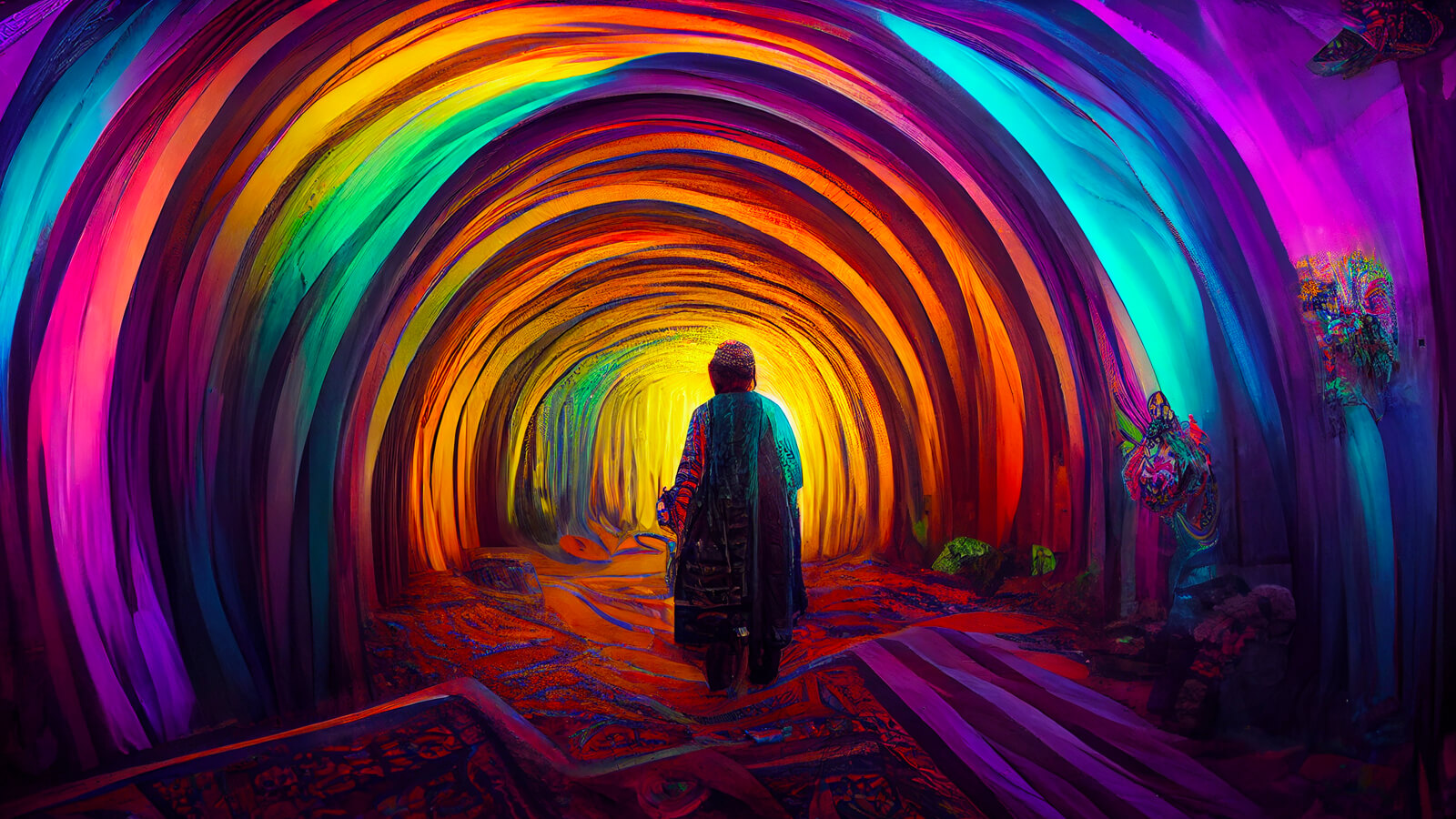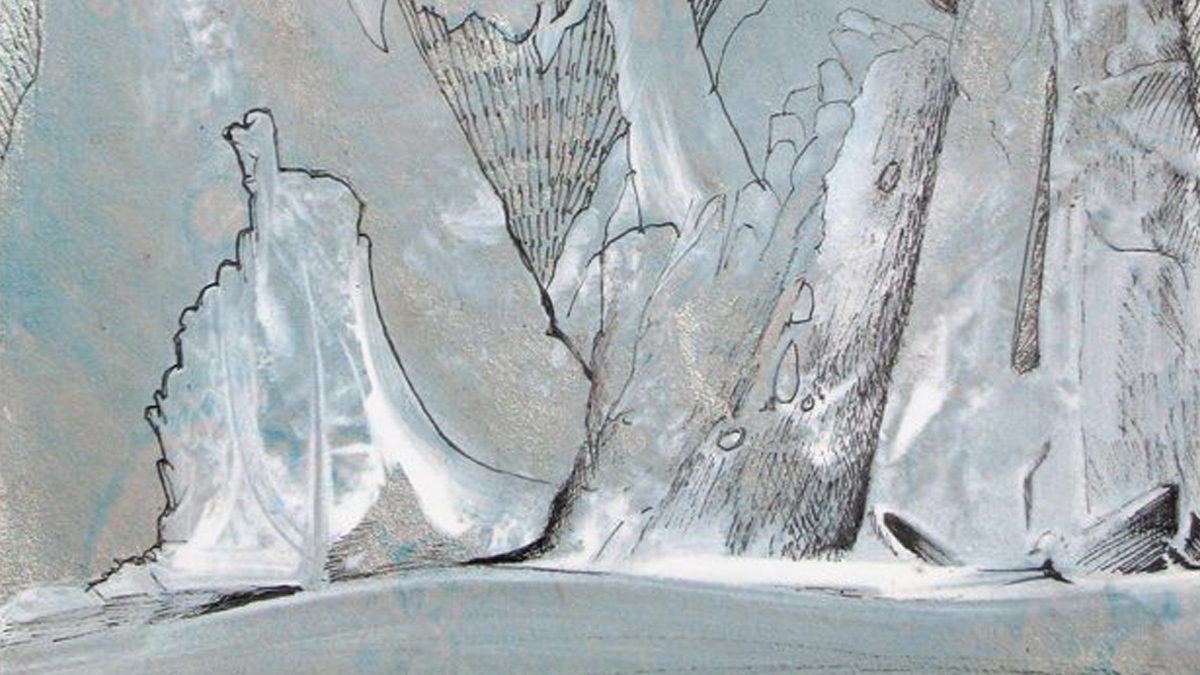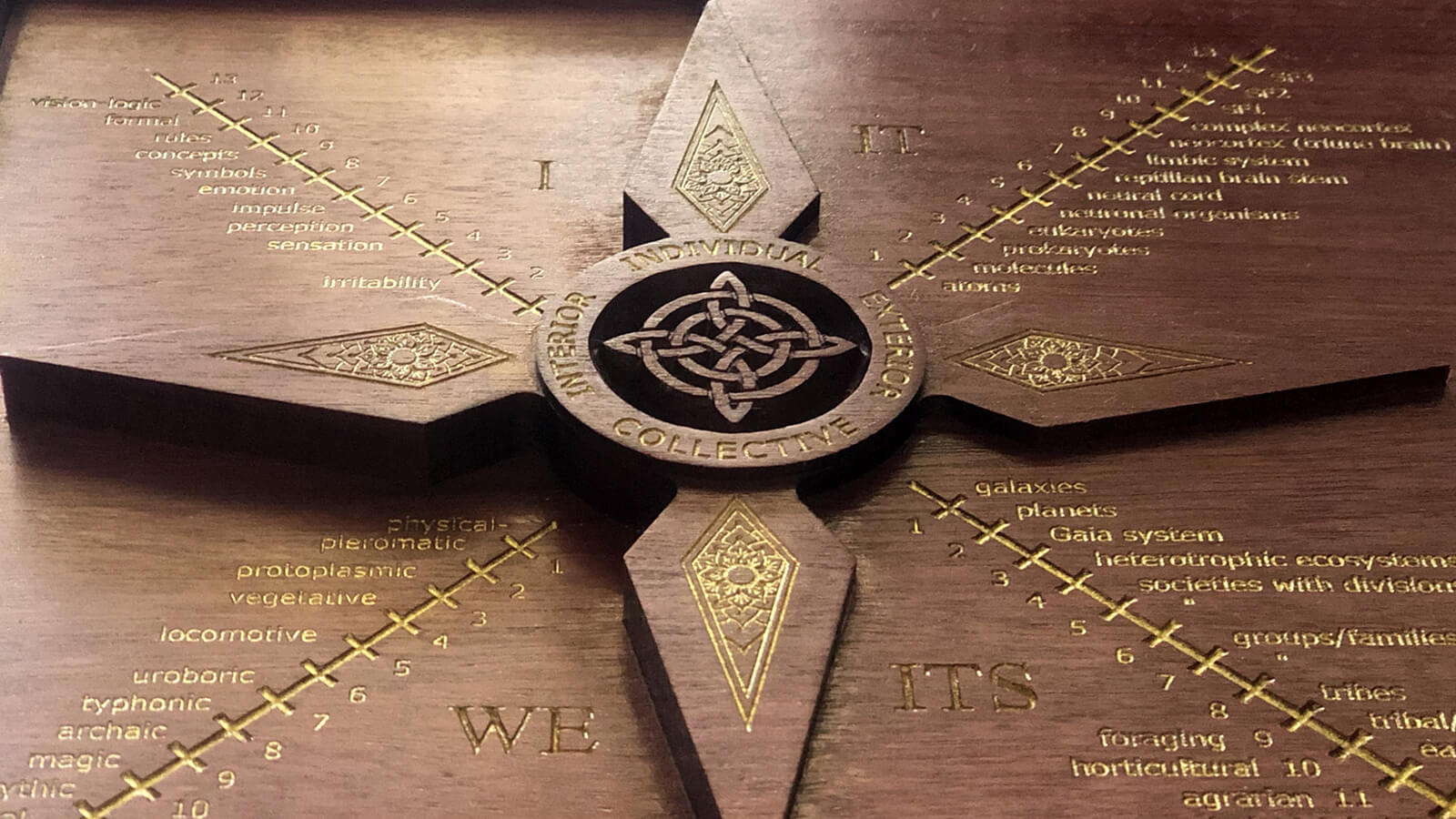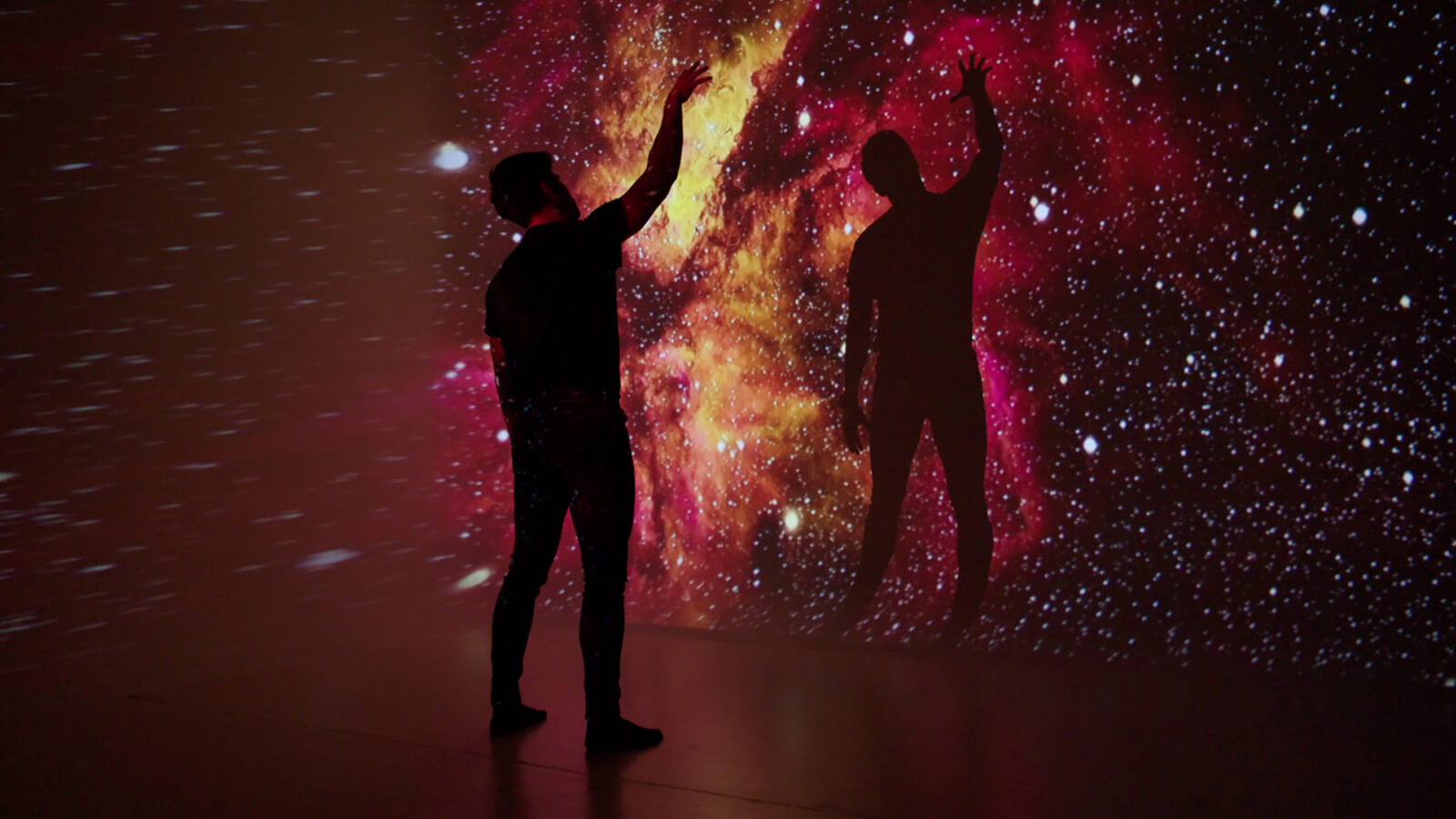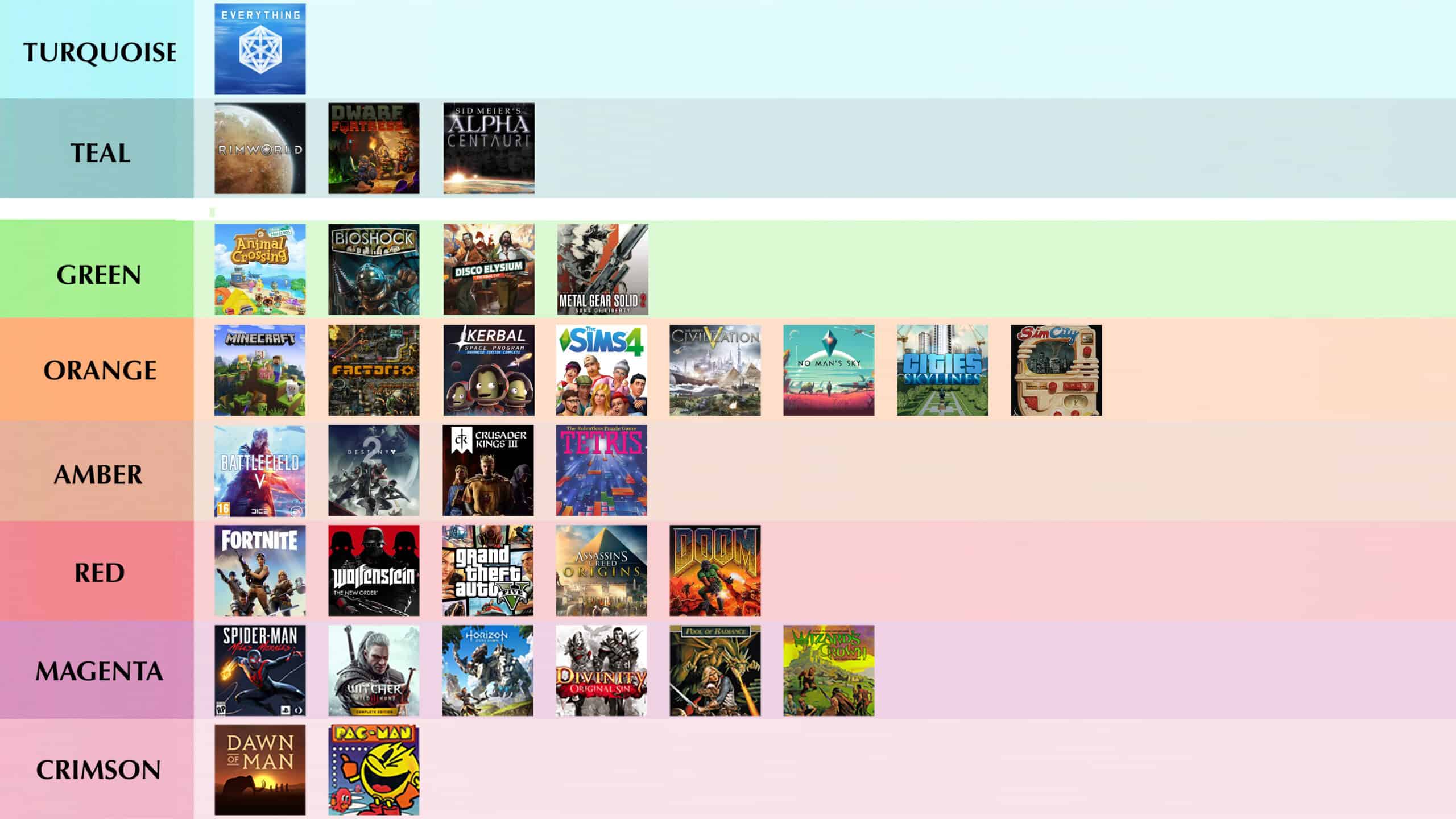“The 8 indigenous perspectives thus enact different (but tetra-related) event horizons—phenomenological worlds or zones, or what I will sometimes call “hori-zones”—horizons of awareness within which various types of occasions arise (or can arise). A hori-zone is a space of possible experience for sentient beings in general. A hori-zone is a meeting place of first, second, and third persons, as they mutually enact each other. Prior to perception is perspective, and a hori-zone is a swatch of the AQAL matrix scoped and felt by a particular play of native perspectives. The various hori-zones are some of the ways the Kosmos feels itself, moment to moment, nakedly.” Ken Wilber
A Yoga of Perspectives
Most of us are already familiar with Ken Wilber’s Four Quadrant map, but this presentation goes one step deeper — we aren’t just looking at the quadrants themselves, but the “inner” and “outer” dimensions of each quadrant (i.e. looking at each quadrant from the 1st-person, and from the 3rd-person). Taken together, these eight zones refer to the most fundamental perspectives that we can take on any phenomenon, and are most often used to organize and situate all of the major methodologies and schools of thought that we use to generate and confirm our knowledge, resulting in something like this:
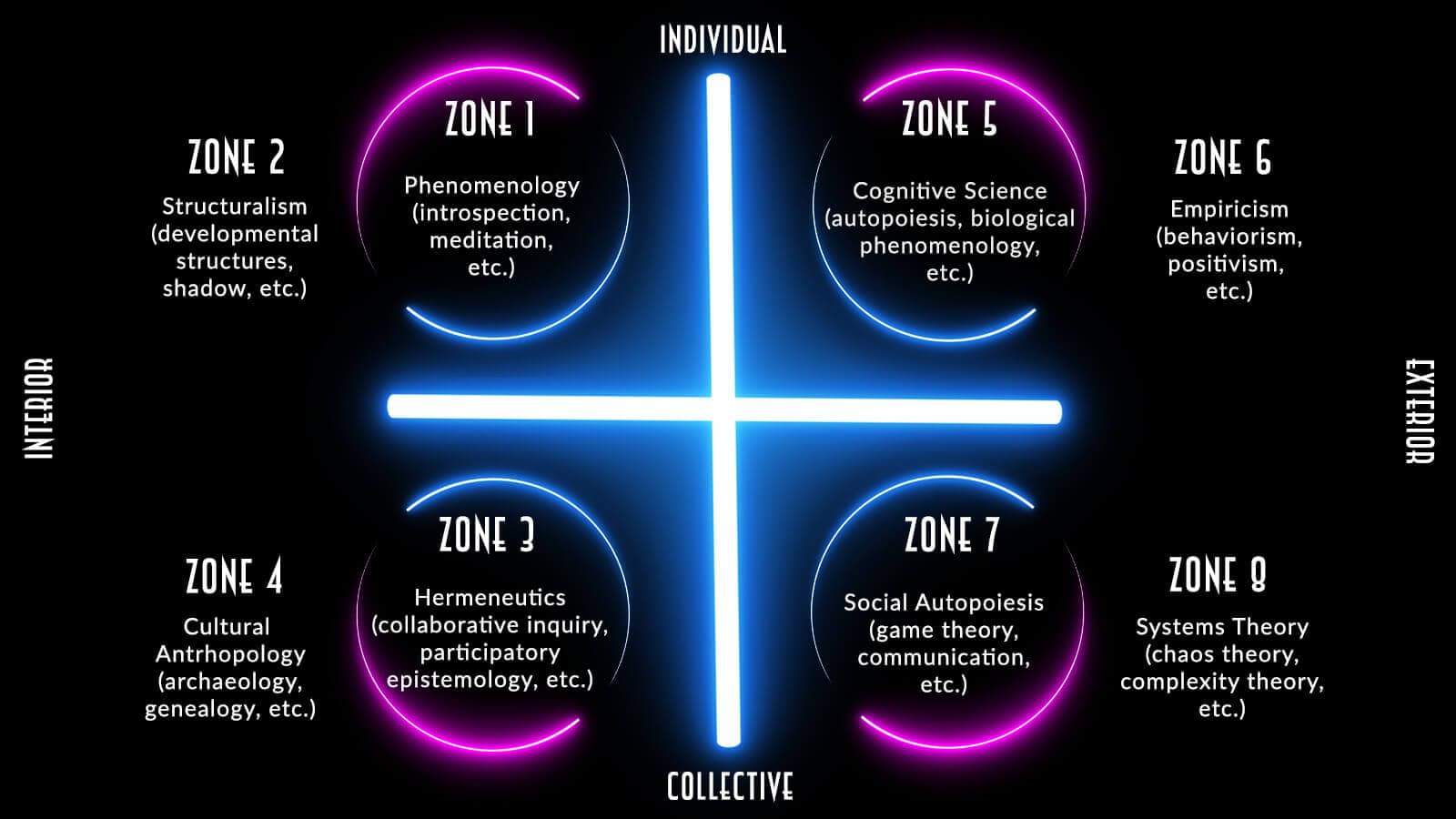
But these aren’t just boxes on a piece of paper; they represent the fundamental perspectives that are available to you right now. We unconsciously slide through these perspectives all the time, and all we need to do is recognize what sorts of perspectives we are taking, so that we can use and inhabit them more consciously. Which is why we wanted to do this episode — to step beyond a mere cognitive understanding of these zones, and instead help find a way to feel into these perspectives and to experience them from the inside out. We want you to become more fluent in this sort of perspective-taking, without requiring a working knowledge of Foucault, Varela, Luhmann, etc.
In other words, this isn’t another hyper-cognitive discussion of integral theory. This is more of a “perspectival yoga”, and we hope that by the time you have finished watching this episode you will be more familiar with these fundamental dimensions of your experience, right now in this very moment.
One of the very best and most common applications of the eight zones is to art, as has been very thoroughly explored by minds like Ken Wilber, Michael Schwartz, Bruce Alderman, and others. In this episode we are doing two things simultaneously — using these perspectives in order to more fully appreciate the art we love, while also using art in order to more fully understand and inhabit these perspectives.
We do so by boiling these perspectival zones down to some very fundamental questions we can ask about any artwork or object we happen to be looking at:
Watch as Bruce, Ryan, and I help make these perspectives a bit more intuitive by noticing how often we are already taking them in our daily lives, how to apply them to any of our experiences.
Written and produced by Corey deVos
Music by Justin Miles and Stuart Davis
Previous Episodes of Inhabit
Inhabit: Your Awakening
 Corey deVos
Corey deVos
 March 7, 2024
March 7, 2024
Inhabit: Your Bardo
 Corey deVos
Corey deVos
 September 15, 2022
September 15, 2022
Inhabit: Your Speech
 Corey deVos
Corey deVos
 April 26, 2022
April 26, 2022
Inhabit: Your Heart
 Corey deVos
Corey deVos
 March 22, 2022
March 22, 2022
Related Media
Aesthetic Practice: Looking at the Overlooked
Michael Schwartz and Philip Rubinov Jacobson
Michael Schwartz offers a powerful aesthetic exercise to help you activate the various perspectives on art (including becoming aware where we are stuck in the fluidity of our perspective taking) and integrate those perspectives into a higher-order perception that will profoundly expand and deepen your aesthetic experience.
The Four Quadrants: A Guided Tour
Ken Wilber and Corey deVos
Ken and Corey take a in-depth tour through one of Ken’s most well-known contributions to integral philosophy: the Four Quadrants. Watch as Ken shares his personal story about the origins of the Four Quadrant model — the day everything came together — as he weaves 3rd-person theoretical descriptions of the model with his own 1st-person experience and creative process. We also take a close look at the nature of the quadrants themselves, and ponder how exactly these fundamental dimensions of existence — dimensions that are every bit as real as the four dimensions of space-time — came into being in the first place.
Inhabit: Your Inner Theatre
Ryan Oelke and Corey deVos
Corey and Ryan take you on a cinematic journey through the stages of human development, using a series of 21 carefully-curated film clips to illustrate some of the most important qualities of each stage. Why film clips? Simple — it’s fun! Plus, these clips are from some of the most popular films from the last 80 years, commonly-shared reference points that most of us are already familiar with. This gives us the opportunity to put together one of the most accessible, friendly, and entertaining ways to introduce these important ideas to newcomers.
Inhabit: Your Game
Corey deVos and Ryan Oelke
In this continuation of our “integral media” series, Ryan and Corey take another look at the major stages of human development, this time using a series of 33 video games in order to illustrate the qualities and characteristics of each stage. All of this allows you to not only observe these stages within you, but to actively inhabit, engage, and play with them as well.
Free Email Course: Build Your Integral Life
We created 24 free lessons that can help you learn the Integrative Mindset needed to thrive in the rapidly-evolving world of the 21st century. Enter your email to start the course:
EMERGE — HOW TO THRIVE IN A WORLD GONE MAD
These chaotic times bring us in touch with what matters most, whispers of death and rebirth, as our global life conditions passionately usher us toward all of what could be, of what wants to emerge in your life.
Emerge is a new training program by Ryan Oelke, offering a thoughtful 3-phase process that will empower you to fully inhabit your experience, more deeply relate in real-time to life, and to formulate agile paths of response and action. With this embodied integral training, you will both be more passionately inspired from the core of your being and you will more successfully see the change, experiences, and results you and we long for and need in this moment and in the future.
Learn how Emerge can help you find traction for your transformationYou can support the global emergence of Integral consciousness
Learn MoreAbout Corey deVos
Corey W. deVos is editor and producer of Integral Life. He has worked for Integral Institute/Integal Life since Spring of 2003, and has been a student of integral theory and practice since 1996. Corey is also a professional woodworker, and many of his artworks can be found in his VisionLogix art gallery.
About Bruce Alderman
Bruce Alderman, MA, is an affiliate faculty at John F. Kennedy University in the Consciousness and Transformative Studies and Holistic Counseling Psychology departments. After years of moderating several integral discussion forums of his own, including Integral Postmetaphysical Spirituality and Integral Scholarship and Practice, he is venturing into production of integral video content himself.
About Ryan Oelke
Ryan Oelke is a co-founder and teacher at Buddhist Geeks and a Senior Teacher of The Realization Process. He has an MSEd in counseling psychology and is contemplative teacher of awakening, healing, and embodiment. He has 20 years experience in meditation, particularly in the Tibetan Buddhist and Dzogchen lineages. Ryan teaches meditation and a way of living dedicated to revealing natural presence and awakening in each moment of our lives, regardless of how it appears to us.







